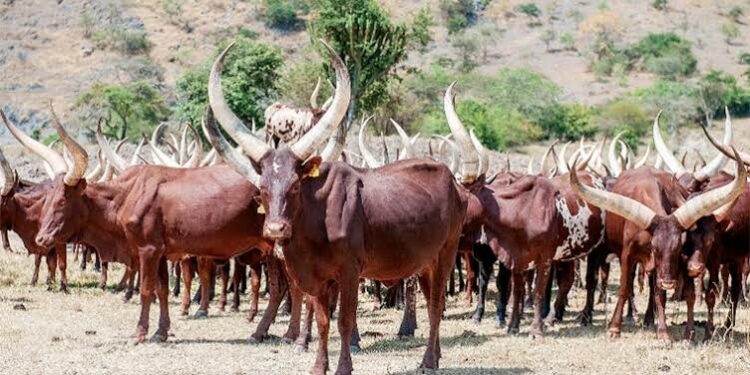A recent directive by the commissioner for animal health restricting movement of livestock in Kampala capital city and ordering the closure of slaughterhouses, butcheries and livestock markets following reports of a foot-and-mouth disease outbreak generated widespread controversy and elicited protests from sections of the public. In the circumstances, an appraisal of the commissioner’s directive in light of Uganda’s legal framework on animal diseases and its obligations under relevant international instruments is apposite.
Before delving into the legal aspects of the ban, an appreciation of the historical context of the enactment of the Animal Diseases Act (Cap. 38), which the commissioner bases on to issue the directive, is germane. The Animal Diseases Act (Cap. 38) (“the Act”) was enacted in 1918 during colonialism, at a time when the Uganda protectorate was administered by Governor Sir Robert Coryndon on behalf of the British government at Whitehall. At p.9 of its annual colonial report for Uganda for 1918-1919, the British government estimated that rinderpest caused the loss of 30,000 cattle in Buganda during the year. The Act, therefore, came into operation at a time when the protectorate was in the midst of a rinderpest epidemic, and the emergency powers it conferred on the commissioner responsible for animal health were fully justified by the exigencies of the time. It goes without saying that emergency powers, whether under the Act or in any other case are universally understood to be an extraordinary measure to be exercised in exceptional circumstances, and emergency measures for halting a plague involving death of 30,000 cattle will not be the same as those that apply to afew cases of foot-and-mouth disease.
Turning to the Animal Diseases Act – which controls on matters of animal diseases in Uganda, unfortunately, the commissioner’s directive does not accord with a number of the Act’s provisions. While section 18 of the Act does empower the commissioner to impose livestock movement restrictions, that notwithstanding, section 18(1) authorises movement of livestock or carcass with the written permission of the veterinary officer or inspecting officer in charge of the area. The powers of veterinary officers and inspecting officers are reinforced via ministerial imprimatur through section 20 of the Act read together with rule 2 of the Animal Diseases (Quarantine) Rules as modified by the Animal Diseases (Quarantine) (Amendment) Rules, 2005 which provides for entry into and movement of livestock into or out of places of quarantine with written permission from a veterinary officer or inspecting officer.
The commissioner’s directive, by purporting to oust the statutory power vested in veterinary officers and inspecting officers to permit livestock movement under section 18(1) is, accordingly, inconsistent with the Act and ultra vires.
Secondly, the framing of the directive is overbroad. Calling for the indiscriminate closure of all livestock markets, slaughter places, animal shows and butcheries including those dealing in, for example poultry, a species not known for susceptibility to foot-and-mouth disease, is irrational and unreasonable. By so doing, the commissioner exceeded the grant of power under the Act.
Turning to international human rights law, Article 11 of the International Covenant on Economic, Social and Cultural Rights (the “ICESCR”) to which Uganda is a signatory enjoins States Parties to recognize the right of all to an adequate standard of living for themselves and their families, which includes the right to adequate food. The same right is encapsulated under Article 25 of the Universal Declaration of Human Rights. The commissioner’s blanket ban on meat products curtails the right to adequate food and nutriment and is inconsistent with Uganda’s obligations under the ICESCR.
In addition to the foregoing, food security is a key national objective and directive principle of state policy encapsulated under article XIV(b) of the Constitution of Uganda, and uninterrupted supply of organic meat to the Ugandan population is a precondition for ultimate realization of this national objective and directive principle of state policy. In the absence of national food reserves, it is important that emergency powers under the Act are exercised with adequate circumspection in order to facilitate rather than impede realisation of this national objective and directive principle. The broad scope of the commissioner’s directive and its open-endedness in terms of duration permeates arbitrariness and imperils attainment of objective and directive principle XIV(b) of the Constitution.
Ergo, considering all of the above, the directive goes beyond the pale of the statutory framework and meets the threshold for extirpation through a grant of certiorari under the Judicature Act (Cap. 13). Simply put, it is ripe for quashing by a court of law seized of the matter.
Going forward, the Ministry’s political leadership should facilitate the review of current protocols on emergency powers related to disease control to ensure that future restrictions follow appropriate legal guidance, have a clear and demonstrable scientific basis that aligns with principles of rationality and proportionality, and are in sync with national values under the Constitution. The intervention by the Rt. Hon. Prime Minister Robinah Nabbanja to have the ban reconsidered was, accordingly, fully justified.
Remmy Wamimbi – Lawyer and public policy analyst.
Do you have a story in your community or an opinion to share with us: Email us at editorial@watchdoguganda.com













